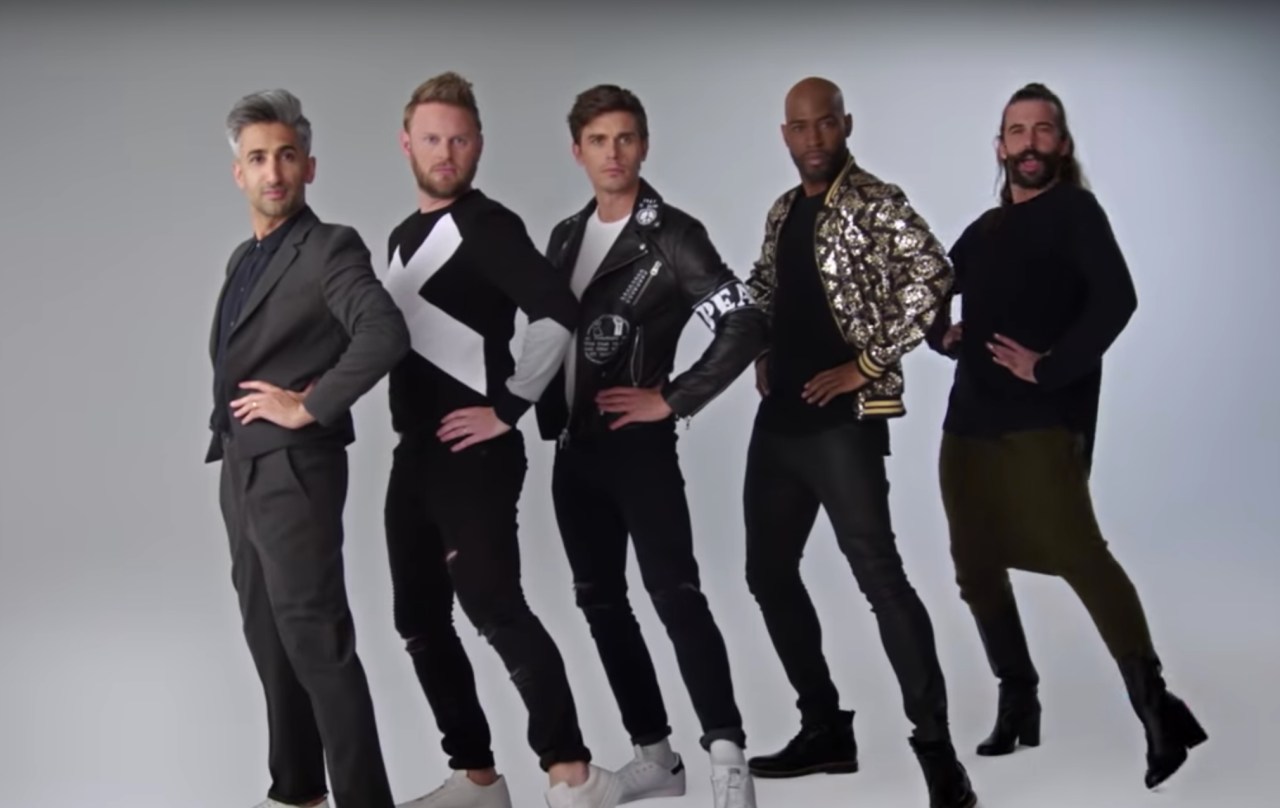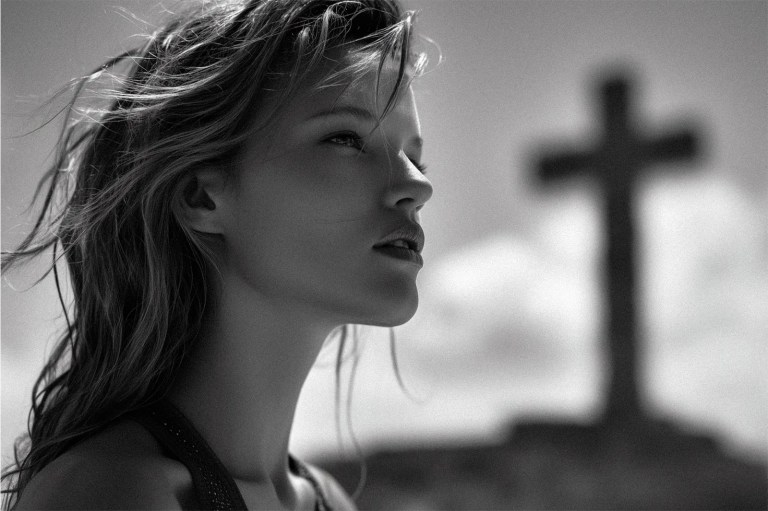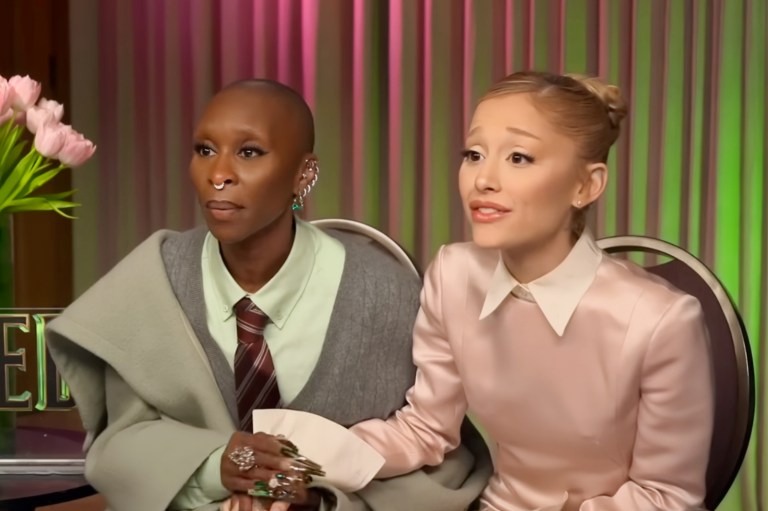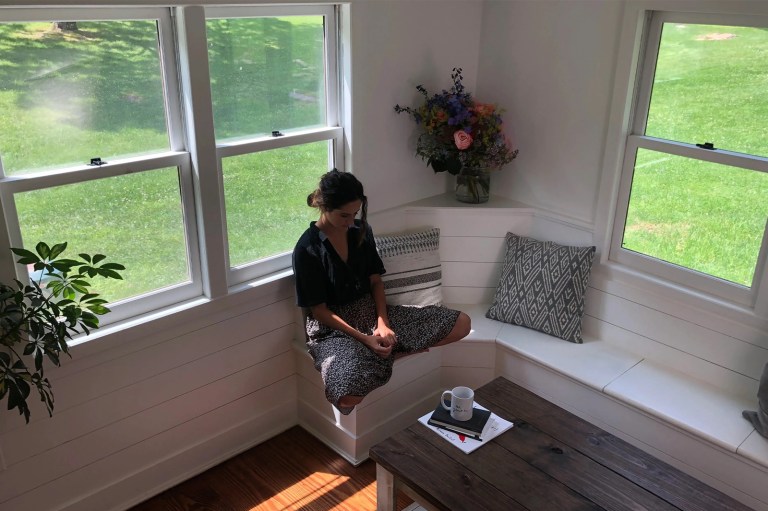
You Don’t Need The Fab Five To ‘Queer Eye’ Yourself
There’s something so therapeutic about watching someone grow past their insecurities through the love and empathy of five total strangers who swoop into their lives to tell them that yes, you are good enough. Maybe it’s because, deep down, we all wish we could do the same.
Queer Eye has officially returned to Netflix, though I probably don’t have to tell you—if you’re anything like me, you probably cried your way through the third season within the first few days of its release. There’s something so therapeutic about watching someone grow past their insecurities through the love and empathy of five total strangers who swoop into their lives to tell them that yes, you are good enough. Maybe it’s because, deep down, we all wish we could do the same.
Unfortunately, most of us won’t ever have the chance to have our lives revitalized by the Fab Five , but that doesn’t mean there isn’t anything we can take away from the show. In fact, Queer Eye is full of little self-love exercises that are meant to be implemented in anyone’s lives, not just those of the nominees. For instance, in the fourth episode of the season, culture expert Karamo Brown took nominee Robert to a dance studio for his personalized self-help session. No, they didn’t learn how to dance—instead, Karamo made Robert stand in front of the mirror and write down every good thing he saw in himself. With just a little prompting, Robert began his list, which included things like “good guy,” “father,” “success,” and “strong.”
It was a particularly touching moment in the episode, at least to me. After all, how many times have I looked in the mirror and only found things to criticize? I focus too much on my acne scars, on the frizz in my hair, on the fat in places I don’t think it belongs. Sometimes I avoided looking at myself at all.
But how much would my life change if, instead of focusing on the things I didn’t like, I started noticing the things I did like?
I think we could all benefit from taking a good, hard look at ourselves and cherry-picking the things we love. Maybe it’s your hair, your eyes, the curve of your waist. Or maybe it’s something that’s below the surface—your sense of humor, your optimism, your kindness, your ability to be a good friend. What if those were the things we allowed ourselves to see when we looked in the mirror?
And so I decided to take up the challenge. I bought an assortment of Expo markers and found the biggest mirror in my house (in my bathroom) and let myself study my reflection for a few minutes. It was a face I was used to looking at, a body I grew up examining in mirrors, but for the first time, I refused to let myself think negative thoughts. And then I started to write.
Before I knew it, I had a mirror full of words.

Here’s just a few things that made it onto my list:
- Optimistic
- Colorful
- Adventurous
- Funny
- Affable
- Understanding
These descriptors weren’t new to me, exactly—they were all things I’d thought before or things people had said about me at some point or another, I’d just never actually allowed myself to put them into words until that moment. But why hadn’t I? Why was I always so reluctant to say nice things about myself out loud?
Most people aren’t taught to say nice things to themselves. When our parents told us, “If you don’t have anything nice to say, don’t say anything at all,” they usually referred to how we spoke about others. But why not extent that same lesson to ourselves? We’re oftentimes so afraid to be seen as cocky or vain that we won’t even voice our own self-admiration. We’re taught that pinpointing the bad will help us improve and ultimately move toward our goal of perfection. But here’s the thing: nobody’s perfect. And I know you already know that. So instead of criticizing yourself for all the things you aren’t, why not celebrate the things you are?
If you were to stand in front of a mirror at this very moment, what would you see? A good friend? A helpful stranger? A loving parent or child? Would you see someone funny and kind and intelligent and beautiful? Or would you be too distracted by the things you wish you could improve?
If it’s the latter, I hope you make it a point to note the positive things you see in yourself. I hope you write them down somewhere for you to see, to remind yourself that, even on the bad days, there are great things about you that you can appreciate. And I hope you continue to add to that list every time you think of something new and continue to let it grow; I hope you continue loving yourself in new ways, no matter how small they may seem.
Because at the end of the day, Queer Eye was never about “fixing” someone or changing them into someone more “acceptable” or “lovable.” Instead, the Fab Five encourages you to look inside and see what’s already there, and to give it the love and attention it deserves. ![]()











